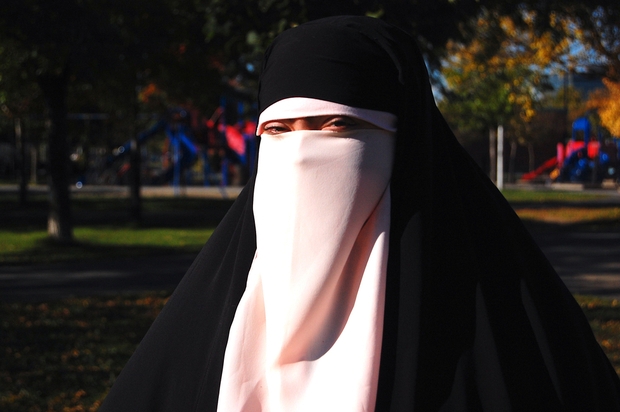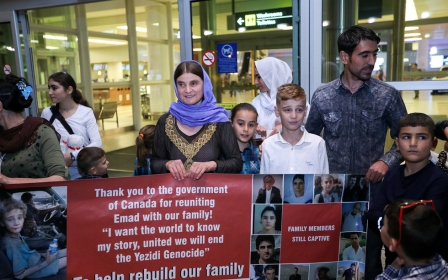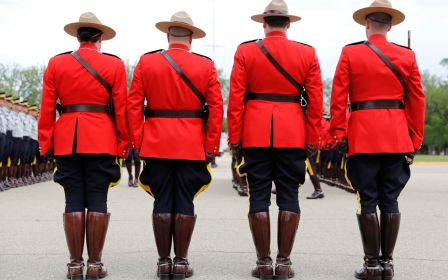Muslim Canadian groups challenge Quebec's niqab ban

Muslim and civil rights groups on Tuesday challenged a Quebec ban on officials or anyone receiving public services from covering their faces, arguing it infringes on women's and Muslim religious rights.
The Canadian Civil Liberties Association (CCLA) and the National Council of Canadian Muslims asked the Quebec Superior Court to rule on the constituationality of the law passed last month.
They also asked for a stay of its implementation.
Marie-Michelle Lacoste, who converted to Islam and wears a niqab, was also listed as a plaintiff in court documents.
Ihsaan Gardee of the National Council of Canadian Muslims told a press conference the law is "discriminatory, unconstitutional and unnecessary."
It "excludes and stigmatises an already marginalised vulnerable minority of women and by extension, the larger Quebec Muslim community," he said.
Cara Faith Zwibel, of the CCLA, said the government should not dictate to women what to wear or not to wear.
"And no woman should have to choose between acting in accordance with her sincerely held religious beliefs and accessing basic public services like taking her child to school on a public bus or visiting a doctor's office," she said.
The legislation applies to bureaucrats, police officers, teachers, and bus drivers, as well as doctors, midwives and dentists who work in publicly-funded hospitals or clinics.
Warda Naili, a Muslim convert who wears the niqab, told Middle East Eye last month that she had been harassed and faced threats because of the way she dresses.
“Women like me, who wear the niqab, you don't see many of us, you don't hear from many of us,” Naili said.
“When this law was passed, I said... ‘Does [this law] mean... we're second-class citizens?’”
The government has said the law was intended to improve communication, identification and safety, and insisted that it applies to all face coverings and does not target Muslim women.
But critics say it will effectively marginalise Muslim women by limiting their access to government jobs and services.
"I should see your face, and you should see mine," Quebec Premier Philippe Couillard said of Bill 62 last month.
On Tuesday, he said he was confident that the courts would uphold the measure.
Middle East Eye propose une couverture et une analyse indépendantes et incomparables du Moyen-Orient, de l’Afrique du Nord et d’autres régions du monde. Pour en savoir plus sur la reprise de ce contenu et les frais qui s’appliquent, veuillez remplir ce formulaire [en anglais]. Pour en savoir plus sur MEE, cliquez ici [en anglais].




